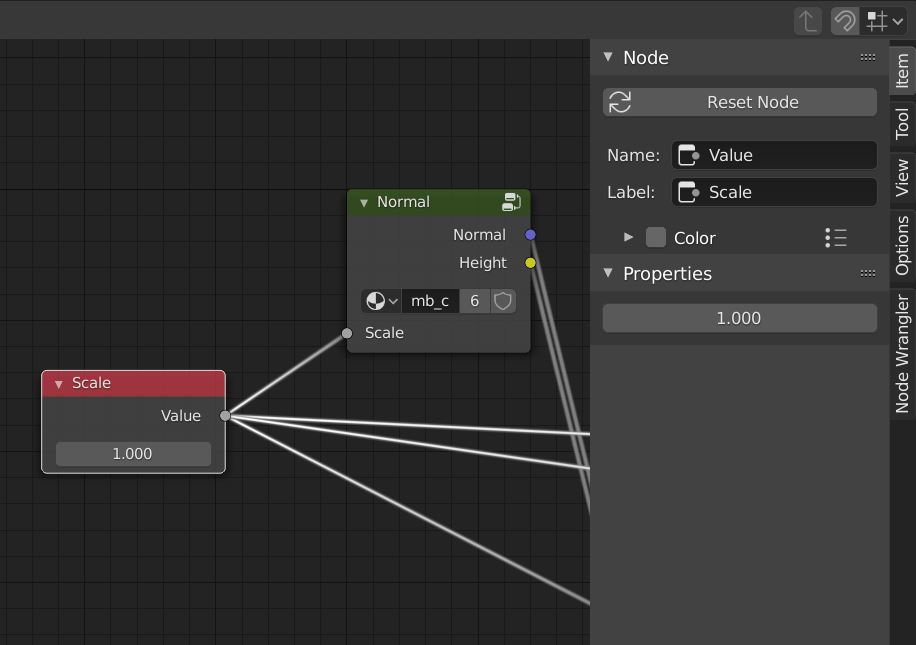Blender and python newbee here.
I would be very happy if one of you could help me with the following problem i am running into:
i have imported a scale model into blender, which i want to render in real life scale. When i scale the model, the materials do not scale with it and look bad. The materials however all have a Value node named "Scale", which, if i edit it with the same scale i am scaling the model, fixes everything and it looks right then.  It would be so much easier to have a script to do that semi-automatically, as the model uses way over 100 objects with different materials...
It would be so much easier to have a script to do that semi-automatically, as the model uses way over 100 objects with different materials...
What i could find was this kind of similar problem solved, but i have not been able to adapt it to solve my problem, as i have no prior experience with scripting.
What i would like to do:
- Select the objects i want to change
- Go into scripting
- copy a script into it
- edit a number that should be put into the value node labeled "scale" of all selected objects
- run script
- be happy to get way better rendering results.
I am using Blender 2.83.4, in scripting the console says PYTHON INTERACTIVE CONSOLE 3.7.4 (default, Feb 17 2020, 16:23:28) [MSC v.1916 64 bit (AMD64)]
Every help is much appreciated!
